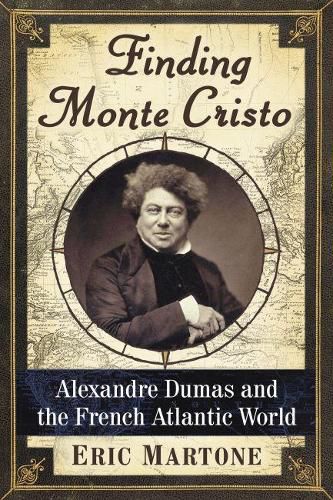Readings Newsletter
Become a Readings Member to make your shopping experience even easier.
Sign in or sign up for free!
You’re not far away from qualifying for FREE standard shipping within Australia
You’ve qualified for FREE standard shipping within Australia
The cart is loading…






This title is printed to order. This book may have been self-published. If so, we cannot guarantee the quality of the content. In the main most books will have gone through the editing process however some may not. We therefore suggest that you be aware of this before ordering this book. If in doubt check either the author or publisher’s details as we are unable to accept any returns unless they are faulty. Please contact us if you have any questions.
During his lifetime, the biracial French writer Alexandre Dumas (1802-1870)-author of The Three Musketeers and The Count of Monte Cristo and grandson of a Caribbean slave-faced forms of racial prejudice in France. He constantly strove to find a place where he could belong, an isolated figure in search for an identity within a larger collectivity. For him, Monte Cristo seemed to symbolize this quest. Just as Monte Cristo proved to be an elusive reality for Dumas, it proved equally elusive to those struggling to overcome slavery and its legacies in the French Atlantic world also searching for their own figurative Monte Cristo. Exiled to the margins of French society because of their colonial origins and the legacies of the slavery, they ultimately attempted to use Dumas to renegotiate a definition of what it meant to be French within the public sphere to allow their full inclusion as French citizens. Nineteenth- and twentieth-century black intellectuals, primarily from former French colonies in the Caribbean and Africa, used perceptions of Dumas, created through his memorialization/commemoration to develop conceptions of national identity and their relation to French culture. Such efforts were influenced by earlier African-American struggles, particularly in the decades immediately after the Civil War, to create a place for their inclusion in wider American society; their efforts also used Dumas, whom they reconfigured as an American black hero.
$9.00 standard shipping within Australia
FREE standard shipping within Australia for orders over $100.00
Express & International shipping calculated at checkout
This title is printed to order. This book may have been self-published. If so, we cannot guarantee the quality of the content. In the main most books will have gone through the editing process however some may not. We therefore suggest that you be aware of this before ordering this book. If in doubt check either the author or publisher’s details as we are unable to accept any returns unless they are faulty. Please contact us if you have any questions.
During his lifetime, the biracial French writer Alexandre Dumas (1802-1870)-author of The Three Musketeers and The Count of Monte Cristo and grandson of a Caribbean slave-faced forms of racial prejudice in France. He constantly strove to find a place where he could belong, an isolated figure in search for an identity within a larger collectivity. For him, Monte Cristo seemed to symbolize this quest. Just as Monte Cristo proved to be an elusive reality for Dumas, it proved equally elusive to those struggling to overcome slavery and its legacies in the French Atlantic world also searching for their own figurative Monte Cristo. Exiled to the margins of French society because of their colonial origins and the legacies of the slavery, they ultimately attempted to use Dumas to renegotiate a definition of what it meant to be French within the public sphere to allow their full inclusion as French citizens. Nineteenth- and twentieth-century black intellectuals, primarily from former French colonies in the Caribbean and Africa, used perceptions of Dumas, created through his memorialization/commemoration to develop conceptions of national identity and their relation to French culture. Such efforts were influenced by earlier African-American struggles, particularly in the decades immediately after the Civil War, to create a place for their inclusion in wider American society; their efforts also used Dumas, whom they reconfigured as an American black hero.